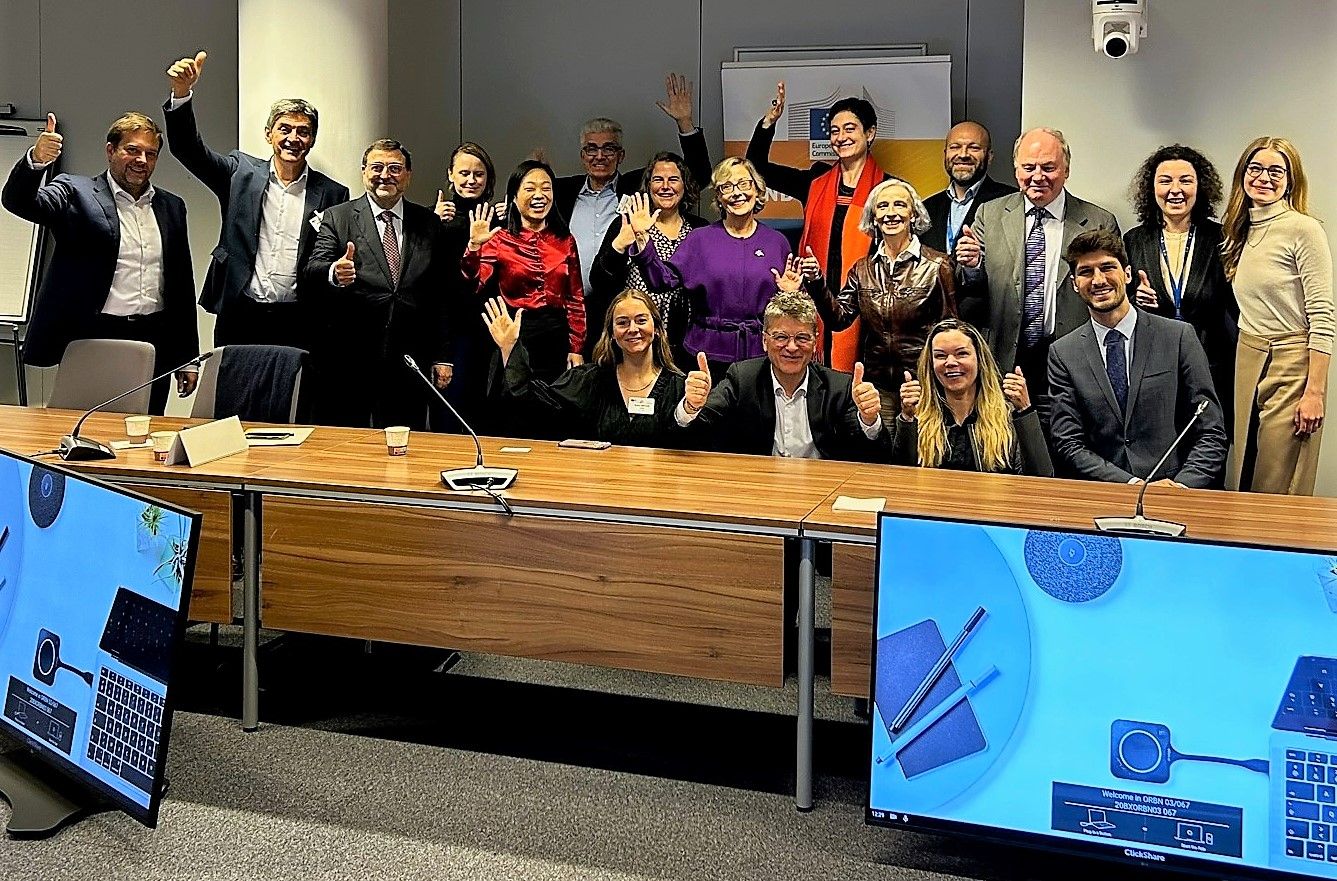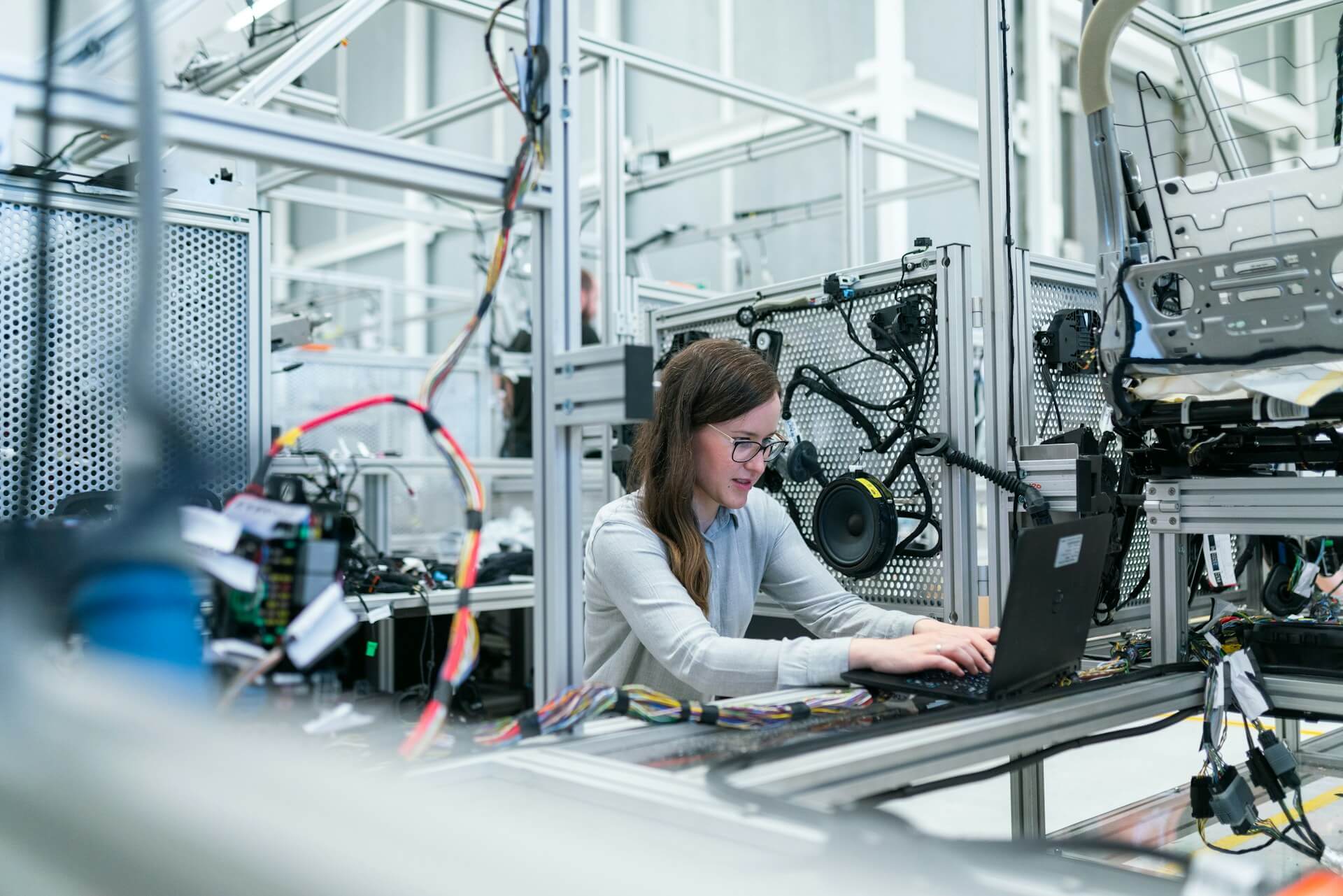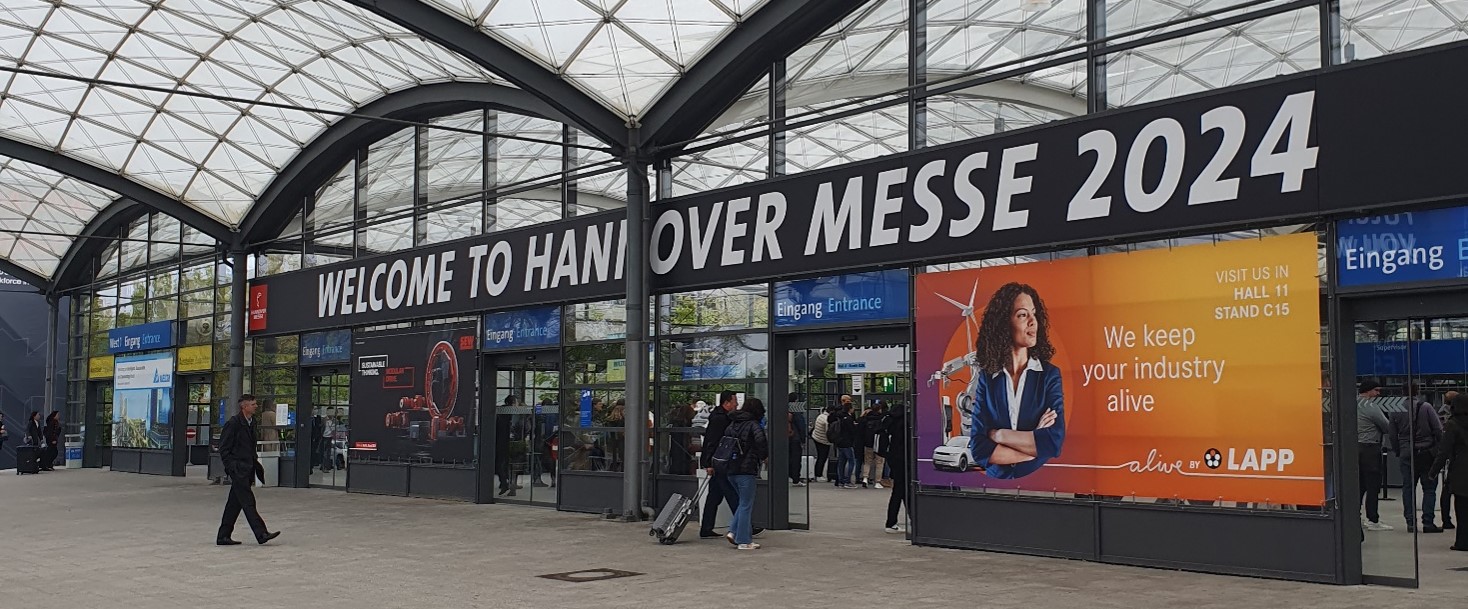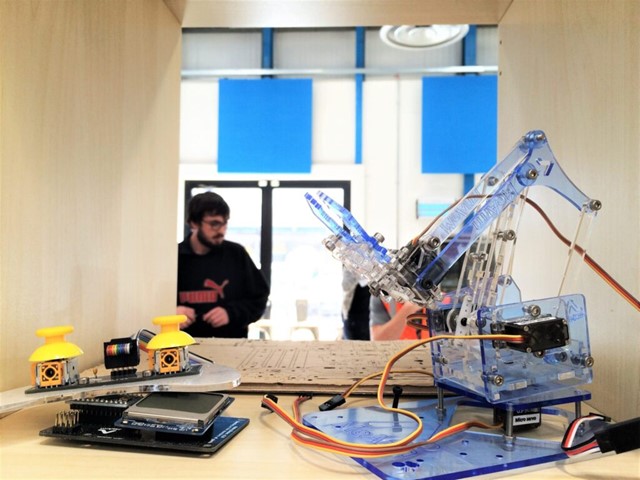
CoP 5.0 Steering Board Members: Kirsten Dunlop (Climate KIC), Judith Kirton-Darling (IndustriAll), Paola Fantini (EIT Manufacturing), Pierre Joris (A.SPIRE Chairman), Steven Dhondt (Bridges 5.0), Greta Braun (Young Manufacturing Leaders), Jean-Pascal Riss (Schneider Electric), Yun Luo (ROSI-Solar CEO), Joaquim Menezes (EFFRA Board of Directors), Andrea Renda (CEPS), Jeroen Kraaijenbrink (Industry 5.0 pioneer), Mauritzio Gattiglio (ManuFuture).
Several initiatives have been introduced in 2023 by the European Commission (DG RTD) to support the transition to Industry 5.0, including the creation of an Industry 5.0 Community of Practice (CoP 5.0). CoP 5.0 aims to facilitate collaboration, share ideas, and provide support in transforming traditional business and organisational models to more impactful ones.
Launch of the Industry 5.0 Community of Practice event
The hybrid CoP launch event organised by the European Commission (DG RTD) on 16 November 2023 brought together stakeholders from various levels to discuss the progress and challenges associated with transitioning Industry 5.0 from awareness-raising to implementation. The event included a high-level panel discussing the role of Industry 5.0 in the societal adaptation to the twin transition of European industries. It marked a significant milestone with the official launch of the Industry 5.0 Community of Practice.
The high-level panel, comprising representatives from EU institutions, industries, R&I communities, and social partners, highlighted several R&I challenges associated with the ongoing twin transition of EU industries and economy.
The ongoing twin transition, encompassing both green and digital aspects, presents unique challenges for EU industries (such as a perceived lack of a business case for decarbonisation, over-regulation, etc.). The current wave of technological change is different: the gap between the large companies’ and SMEs’ capacities to leverage new digital technologies and their innovation performance is widening, as organisational agility, know-how and skills become key success factors. The challenging geopolitical context, climate change, demographic changes and evolving societal values and contexts add significant pressures on industry to adapt and leapfrog to new models.
To contribute to addressing these challenges effectively, a paradigm shift is needed in the design and implementation of innovation in EU industry, especially in SMEs and in industrial ecosystems. This entails embracing a fresh perspective, substantial investment in solution proliferation, ample resources, competitive sustainability, and collaboration principles to establish new regenerative business models. Efficient cross-sectorial collaboration for policy coherence is crucial, and creating an enabling environment is a prerequisite for innovation to play a key role in transforming EU industries.
In addition, there is a need to enhance the dialogue on innovation and its interaction with the public. Europe’s (only) competitive advantage lies in innovation, and the EU’s goal should be to become the global leader in innovative technologies of the future, such as green technologies, AI etc.
The social dimension should be a key consideration in the twin transition, necessitating a new social contract between industry and society.
Industry 5.0, with its focus on human-centricity and placing the workforce at the centre of production processes, can play a vital role in addressing these challenges. By reinforcing the role and contribution of industry to society, Industry 5.0 can bring the social (human-centric) dimension to the twin transition. This includes reinforcing collaborative approaches, bringing the workforce at the centre of production processes, and promoting industrial democracy in which workers and local communities are recognized as key stakeholders in company decisions. This paradigm shift in industry must align with new economic realities, resulting in new regenerative business models.
Discussions with the Industry 5.0 Community of Practice Steering Board Members1 (Industry 5.0 pioneers) emphasized the importance of close collaboration between large industries, SMEs and start-ups to implement successfully, and accelerate the adoption of, new approaches and Industry 5.0 principles in practice. The incorporation of human-centricity in the digital transition at company level can accelerate bottom-up innovation.
The official launch of the Industry 5.0 Community of Practice (CoP 5.0) marked a significant step in the acceleration and scaling-up of Industry 5.0. Bringing together over 100 European innovation ecosystem stakeholders, CoP 5.0 aims to share best practices, co-create actions, and provide a platform for networking and collaborations. During its initial phase (November 2023 – June 2024), CoP 5.0 will focus on three workstreams: in-depth analysis of Industry 5.0 with a focus on the learning ecosystem approach, development of Industry 5.0 prototype learning and assessment tool, and creating an inventory of Industry 5.0 pilot projects. The first deliverables and future orientations of CoP 5.0 will be discussed at its first plenary session in May 2024.
Conclusions
The ongoing twin transition, encompassing both green and digital aspects, presents unique challenges for EU industries. A paradigm shift is needed in the design and implementation of innovation to address these challenges effectively.
Industry 5.0 holds the potential to play a pivotal role in the ongoing transformational process of EU industries. By reinforcing the contribution of industry to society, it can bring the social (human-centric) dimension to the twin transition and contribute to establishing regenerative business models. New Industry 5.0 initiatives, particularly the Industry 5.0 Community of Practice, are poised to significantly contribute to intensifying collaborative approaches, generating examples of good practices and co-create new ideas for an acceleration of Industry 5.0 implementation to increase sustainable competitiveness and resilience, address the evolving skills needs, and attract the best talents, while respecting the production limits of the planet.
Related articles
May 11, 2024







